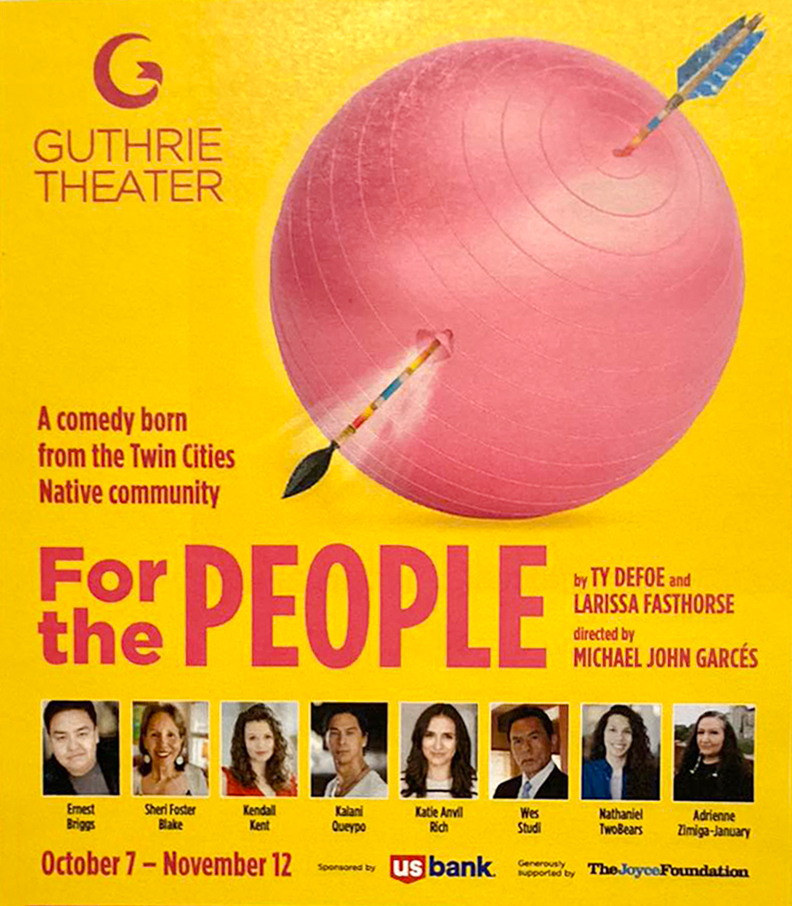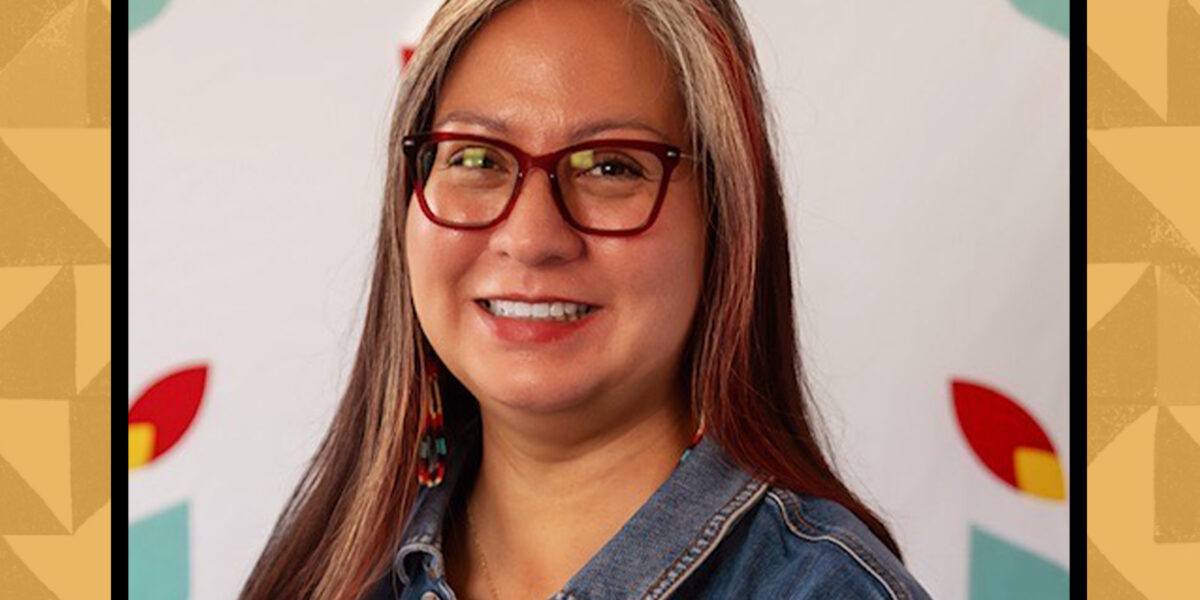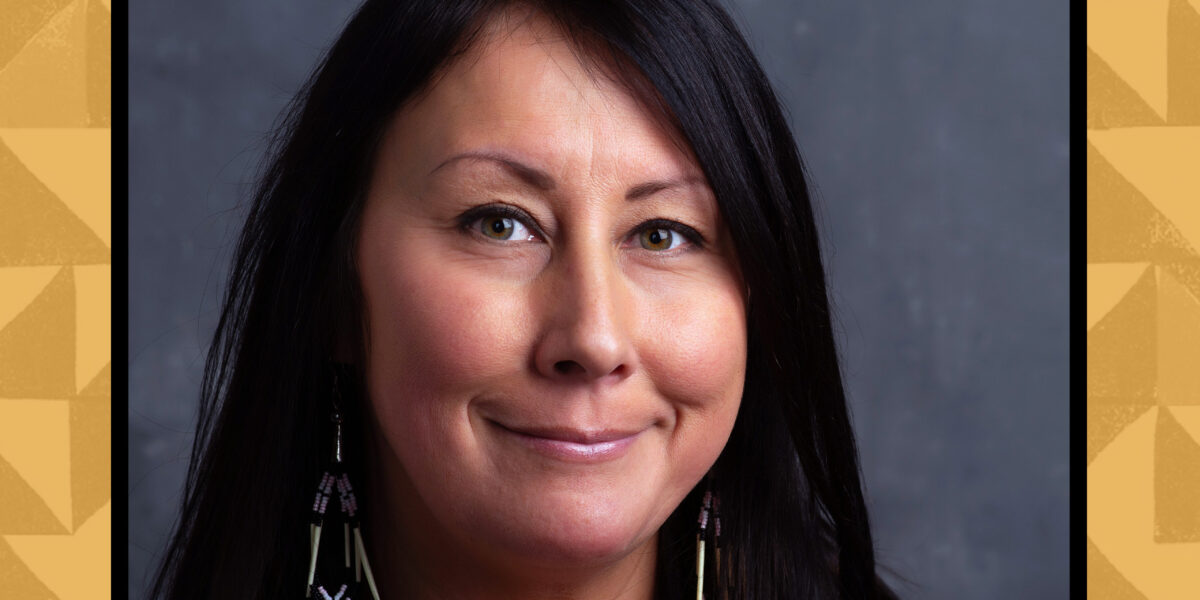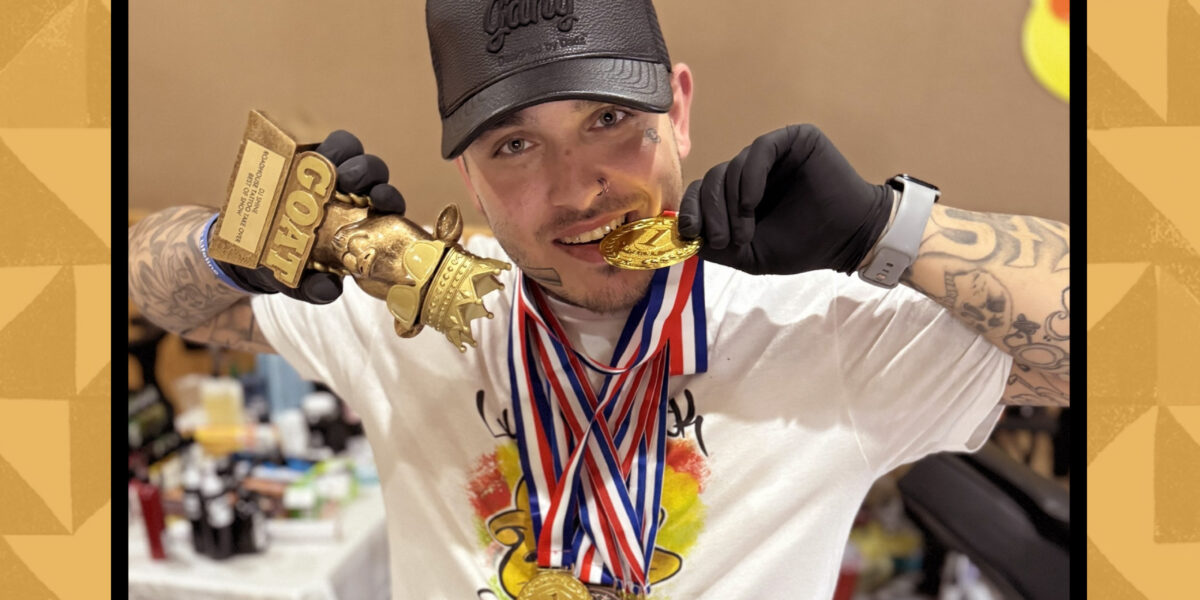
| “For the People,” the first Native-written and -led play to take center stage at the Guthrie Theater, recently wrapped its run after five weeks. “For the People” tackled big questions of urban Native communities, clashes of tradition and the Western world, and gentrification, all from Franklin Avenue. |
Estelle Timar-Wilcox: Native and non-Native audiences have been raving about “For the People.”
Colin Cash is a big theater fan and a member of the Mille Lacs Band of Ojibwe. When he saw it, he forgot he was even watching a play. He even offered to pay for people’s tickets so they could go, too.
Colin Cash: In my eyes, for me, it wasn’t just a play, it was an experience, and a look into the urban natives trying to find acceptance, community. There’s so many nuances, the writing is just brilliant and there’s layers to it. I’ve been recommending it to a lot of different people, because representation does matter.
ETW: “For the People” premiered at the Guthrie in October and ran through November 12th. The show follows April Dakota, a young Native woman with big dreams of opening a wellness center on Franklin Avenue. April means well, but she’s a little misguided. Her plans for vegan regalia and new-age Indigenous yoga get some eye-rolls from her elders. She lands in a tangle of neighborhood politics and a partnership with a rich developer that goes very wrong.
The Guthrie commissioned this show from playwrights Ty Defoe and Larissa FastHorse. FastHorse is a member of the Sicangu Lakota nation; her mom is from Minnesota, and she grew up in South Dakota. Defoe has Ojibwe and Oneida heritage, and grew up on Anishinaabe territory.
But they weren’t the only voices behind it. FastHorse said they developed the play using story circles – meetings with local Native people to see what they wanted to watch a play about.
Larissa FastHorse: It’s really about making sure that we aren’t writing what we want to write, we’re writing what the community wants us to write, and we’re asking the community again and again, ‘hey, whoever wants to tell us what you want a play to be about — come on, let us know.’
ETW: The show mentions a lot of local landmarks and history — from the start of the American Indian Movement to Owamni.
And the biggest note they got: it has to be funny.
The result is a hilarious 90 minutes. The final battle features a yoga competition and a paintball bow-and-arrow. The comedy weaves through some really touching moments, too.
Co-writer Ty Defoe was responsible for writing a lot of the jokes.
Ty Defoe: That kind of comedy allows a type of a healing. When people either see themselves portrayed on stages or are a part of that process, I think there’s something that allows the collective soul of Native people to come together in an urban environment that settler colonialism has so affected so that we can have a joy and a type of perseverance working together.
ETW: Lindy Sowmick is Saginaw Ojibwe. She grew up in Michigan and moved to Minnesota for college. She called “For the People” the greatest play she’s ever seen.
Lindy Sowmick: There’s that feeling, deep in your heart, or in your stomach, when you’re like, this is healing for my community. That’s what art is meant to do, art’s meant to tell a story. And you know, Indigenous folks have been storytellers for our entire generations. I think that this is just such a beautiful result of generations of us being storytellers.
ETW: The Guthrie advertised the show as the first Native-written play on its main stages. FastHorse said she’s glad it reached a wide audience.
LF: That’s the beauty of theater. It’s a live experience where you go with people that are having completely different experiences, and then you get to talk about it. It makes you have to interrogate things in a different way, which we really love. We’re very aware that we’re writing for a predominantly white institution, with a dominantly white subscriber base, but there was so much work being put into making sure we had a broader audience coming to this. And we made sure that this play was for the people, right?
There were a lot of things that didn’t read to the white people, and we were like, that’s okay. That part’s not for you, and that’s fine. (Laughter).
TD: For! The! People!
ETW: Defoe and FastHorse are partnering to consult with more organizations to help them do outreach to Native communities, including the Macy’s Thanksgiving parade and Arizona State University.
FastHorse’s adaptation of Peter Pan is showing at the Ordway in Minneapolis in December.
For Minnesota Native News, I’m Estelle Timar-Wilcox.
More from Native Lights
- Allison Waukau: Empowering Native Stories Through Community Service and Podcasting
 In this episode, we speak with Allison Waukau (Menominee/Navajo), who serves as the Tribal Liaison and Native Relations Coordinator at the Metropolitan Council. She previously worked at the Hennepin County Library and the Roseville School District as American Indian Community Liaison. Last year, she started a new podcast with Odia Wood-Krueger. Through “Books Are Good Medicine,” the co-hosts explore Native literature with the aim of increasing the knowledge of educators and libraries about Native American books and materials. Allison Waukau lives in Minneapolis with her family, including a young son, and had a dream come true recently when she was selected to participate in Cohort 14 of the Native Governance Center’s Rebuilder Program. Allison’s podcast with Odia Wood-Krueger can be found at Books Are Good Medicine.
In this episode, we speak with Allison Waukau (Menominee/Navajo), who serves as the Tribal Liaison and Native Relations Coordinator at the Metropolitan Council. She previously worked at the Hennepin County Library and the Roseville School District as American Indian Community Liaison. Last year, she started a new podcast with Odia Wood-Krueger. Through “Books Are Good Medicine,” the co-hosts explore Native literature with the aim of increasing the knowledge of educators and libraries about Native American books and materials. Allison Waukau lives in Minneapolis with her family, including a young son, and had a dream come true recently when she was selected to participate in Cohort 14 of the Native Governance Center’s Rebuilder Program. Allison’s podcast with Odia Wood-Krueger can be found at Books Are Good Medicine. - Dr. Amber Annis: Rebuilding Community with the Native Governance Center
 In this episode, we hear from Dr. Amber Annis about the joys and challenges of rebuilding community and finding your voice as a leader. Dr. Amber Annis is a citizen of the Cheyenne River Sioux Tribe and the Executive Director of Native Governance Center. Prior to taking on her role at NGC in December 2024, …
In this episode, we hear from Dr. Amber Annis about the joys and challenges of rebuilding community and finding your voice as a leader. Dr. Amber Annis is a citizen of the Cheyenne River Sioux Tribe and the Executive Director of Native Governance Center. Prior to taking on her role at NGC in December 2024, … - Deven Current: Healing Through the Art of Tattooing
 In this episode, we hear from Deven Current about tattooing, sports and the importance of sobriety, family and faith. Deven is an Ojibwe tattoo artist, who connected with his culture later in life. Deven grew up in the Twin Cities and, at a young age, fell into drug addiction. He ended up incarcerated, but his time …
In this episode, we hear from Deven Current about tattooing, sports and the importance of sobriety, family and faith. Deven is an Ojibwe tattoo artist, who connected with his culture later in life. Deven grew up in the Twin Cities and, at a young age, fell into drug addiction. He ended up incarcerated, but his time …
Subscribe to Minnesota Native News in your favorite podcast app
- New Native Theatre’s 15th Year & REAL IDThis week, how REAL ID requirements impact Indigenous people, especially Two-Spirit individuals. Also, New Native Theatre’s latest play runs April 16-May 4.
- Ziigwan Biidaajimowin (Spring News): NACC Issues Call for Artists and Little Earth Kicks Off American Indian Month with a ParadeThis week, Minneapolis’s Native American Community Clinic (NACC) seeks artists to commission pieces for their new building. Plus, nearby, the Little Earth of United Tribes housing community will kick off May’s American Indian Month with a celebration organized in part by the Minneapolis Public Schools American Indian Youth Council, Ogichida Oyate

 Sasheen Goslin: Public Health Advocate & Scholar
Sasheen Goslin: Public Health Advocate & Scholar